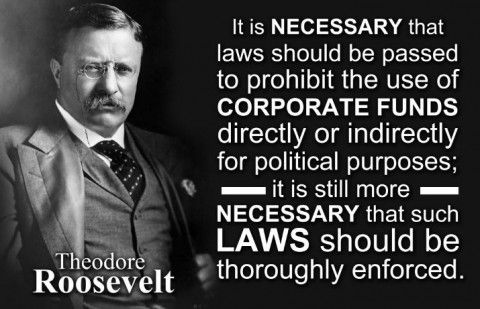Optimism is a good characteristic, but if carried to an excess, it becomes foolishness.
Theodore Roosevelt
Several years ago, my computer was hacked at the Denver International Airport. Shortly afterwards, I started receiving emails addressed to “Ricot Claude” (not anywhere near my name or nickname) from Democratic party campaigns and affiliated groups hounding me for contributions. Many of them came through a super-PAC called ActBlue. The experience exposed a major problem in campaign finance regulation that could be a source of the same kind of “dark money” targeted elsewhere in the For the People Act.
The fundamental flaw of the current system is that it brands the contributors, not politicians, as the culprits who need regulation. At the same time, the Federal Election Commission has almost no resources to chase down and enforce violations by errant contributors. Campaigns and PACs need only use their “best efforts” to determine whether a contribution is legal, which is defined as only requesting the basic identifying information required by disclosure reporting. See 11 CFR 104.7. The committee can rely solely on the representations by the contributor and no independent verification of the source of the contribution is required. The only exception is the presidential campaign matching fund program. See 11 CFR 9034.2. Candidates may only receive matching federal funds for contributions evidenced by a “written instrument”. This is specifically defined as a check, a credit card accompanied by a signed transaction slip or, in the case of an Internet contribution, an electronic record transmitted by the cardholder with a copy of the credit card number and the name of the cardholder. Thus, the candidate automatically has sufficient independent information to verify the identity of the contributor.
In 1995, the FEC ruled in Advisory Opinion 1995-9 that contributions via the Internet were subject to the lax reporting standards applicable to most committees and did not need to be independently verified (see the answer to Question No. 4). This may explain why so few presidential candidates use matching funds anymore and rely so heavily on Internet contributions instead. This opinion also authorized the use of outside financial contractors to solicit and manage the contribution process. Since then, a cottage industry of third party vendors unregulated by the FEC has arisen to solicit, raise and manage contributions on behalf of political committees (see this example of Paypal’s service). Only these vendors have the information about the credit card or other source of a contribution. They have no obligation to cross-reference the name on the credit card or Paypal account or other source against the name reported to the committee or report any discrepancies to the committee.
Thus, I could have used the system to make illegal contributions under the name “Ricot” with very little likelihood of consequences. A corporation or foreign national could have done the same. The potential for abuse was documented in a forensic audit of ActBlue’s contributions by former Kansas Attorney General Phil Kline, who reported that fully 48% of ActBlue’s contributions came from the unemployed while its Republican counterpart WinRed had only 4%. It also showed how gift cards can be used to game the system.
This loophole needs to be plugged before it becomes a floodgate of foreign and other dark money into political campaigns. One way would be to impose on all political committees the documentation and verification rules required under the presidential matching funds program. In the alternative, the FEC should have the power to regulate outside vendors that manage contributions for committees and impose the same kind of verification rules applicable to the private sector. A model for such a program can be found in the Federal Trade Commission’s Identity Theft Prevention Rules, which require certain creditors to check transactions against red flags of identity theft. In the absence of congressional legislation, the FEC should require political committees to use such mechanisms to verify the source of the contribution or require their vendors to have such a system and actively audit the vendor to insure it is enforcing the program.
Internet contributions have been hailed as the average American’s answer to the influence of corporate contributions and dark money. As Theodore Roosevelt said, we should not let that optimism cause us to repeat the mistakes of the Trojans in the Iliad and unwittingly unleash the same kind of abuses we want to prevent. The For the People Act or any similar campaign finance reform should be amended to control against this threat. Otherwise, we may find that the plugging of one dark money loophole will simply cause it to spring up in a more corrosive and damaging form.



